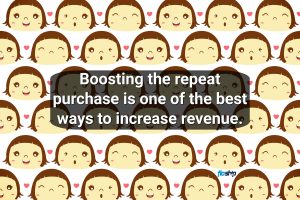I’ll never forget the time I drew the short straw when deciding room size in my first apartment. Out of the three rooms, two with sound-proof walls and walk-in closets, I ended up in the third makeshift bedroom (which was really a converted den with paper thin walls). As a light sleeper and non-functional human without eight hours of REM, I was filled with rage.
We’ve all been in these scenarios. Wrath, our next deadly sin, is the feeling of uncontrollable rage. It’s no joke, and I guarantee if you commit this PPC sin you’ll be suffering extensive consequences.

This rage most often occurs in PPC when advertisers have failed to use negative keywords.

Why Are Negative Keywords So Important?
When clients commit the sin of not setting up negatives they often end up wasting buckets of spend upon irrelevant searches without even realizing it. It’s essentially like being pickpocketed, except the wrath that results is 100% your fault. Hate to break it to yah! So why are negatives so important? Because they block irrelevant searchers from seeing and clicking on your ads. Let’s say you’re a music store bidding on the keyword “flutes”; do you want to show up for “champagne flutes”? I’d assume not, but if you haven’t set “champagne” as a negative keyword you just may.
WARNING! Before going on a negative keyword rampage, learn how they work at the various levels.
Account Level Negatives
Account level negatives are used when the keywords are completely irrelevant to your business. For instance if you sell tennis rackets, but only for adults, then you want to make keywords like “kids” and “children” account level negatives, so they apply across your entire account.
Campaign Level Negatives
Campaigns can be set up in a variety of ways, often prioritized around budget allocation. Whether it be by product lines, locations, or even sales cycles, you want to ensure that your searches are being directed to the right place. For instance, if you have a campaign for “tennis beginners” you wouldn’t want an advanced player seeing an ad geared toward newbies. Therefore you should make “advanced” a campaign level negatives in your “beginners” campaign.
Ad Group Level Negatives
Lastly, there’s ad group level negatives, which should be applied to ensure you’re showing the most relevant ads to the most relevant searches. For instance, if you have a tennis racket campaign for various brands, you wouldn’t want your Wilson tennis racket ads appearing when someone is searching for Prince tennis rackets, therefore you would set “Wilson” as a negative in your “Prince tennis rackets” ad group.
So, you’ve determined some negative keywords to set up at various levels in your own account, but how do you ensure that you’re continuously blocking irrelevant searches?
Make Use of the Search Query Report
Adding negatives is not a one-time task, and should be part of your weekly or bi-weekly workflow. Ensuring you’re blocking these irrelevant searches can save you money and improve relevancy. Spend time going through the Search Query Report in AdWords, which is a report that shows you what people are typing into Google to make your ads appear. (If you’re a WordStream client, use the QueryStream feature.) You can then take action and set the irrelevant keywords as either account, campaign, or ad group level negatives.

You’ll be amazed by the amount of spend you save (and the wrath you avoid) when you stop sinning and start properly using negatives.
Digital & Social Articles on Business 2 Community(82)







